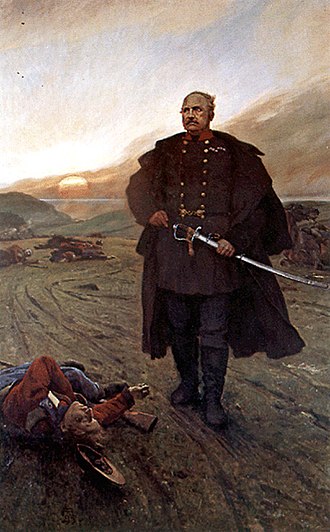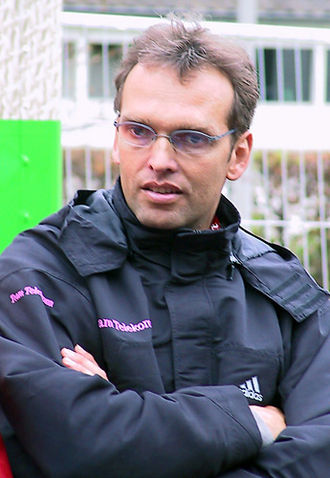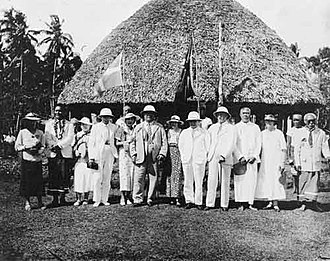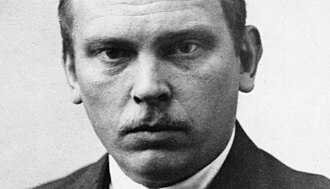Discover Your Roots
SIGN UPDiscover Your Roots
SIGN UPOlaf is a male name of Scandinavian origin, derived from the Proto-Norse *Anu-laibaz, meaning "Ancestor's Heir". In the Norwegian language, both Olav and Olaf are used, with Olav traditionally referencing Norwegian royalty. The Swedish form of the name is Olov or Olof, and the Danish form is Oluf. Notable historical figures bearing the name include Olaf II of Norway, also known as Saint Olaf, and Olaf I of Denmark. In modern times, prominent individuals with the name include Olav V of Norway, Olaf Scholz, the current Chancellor of Germany, and Erwin Olaf, a Dutch photographer. Additionally, the name has been featured in fictional characters such as Count Olaf in "A Series of Unfortunate Events" and Olaf, the anthropomorphic snowman in the film "Frozen".

Olaf Rye (16 November 1791 – 6 July 1849) was a renowned Norwegian-Danish military officer who tragically lost his life during the First Schleswig War, earning his status as a Danish war hero. Born in Bø, Telemark, Norway, Rye's military journey began as a cadet in the Norwegian Cadastre Corps, eventually rising to the rank of major-general. He also served in the Royal Danish Army and played a pivotal role in the Battle of Fredericia. Rye's passion for skiing was well-known, and he even set a ski jumping world record, showcasing his extraordinary talents beyond the battlefield. His legacy lives on through various landmarks and institutions named after him, including Camp Olaf Rye in Kosovo, Ryes Kaserne in Fredericia, and streets in Oslo, Bergen, Kongsberg, and Odense. Olaf Rye's remarkable contributions to military history and his enduring legacy are commemorated through these tributes and his significant place in Danish and Norwegian history.

Olaf Ludwig, born on April 13, 1960, in Gera, Bezirk Gera, is a renowned former German racing cyclist. Beginning his career at SG Dynamo Gera / Sportvereinigung (SV) Dynamo, Ludwig initially raced as an amateur due to his East German nationality. However, after the reunification of Germany, he turned professional with the Panasonic team. Notably, he achieved great success, including winning the points classification in the 1990 Tour de France and the Olympic road race in Seoul in 1988. Additionally, Ludwig secured a record 38 stage victories in the Peace Race, triumphed in the Amstel Gold Race in 1992, and achieved podium placings in the Paris–Roubaix. His exceptional sprinting abilities led to victories in the 1992 UCI Road World Cup and various Tour de France stages. After retirement in 1996, Ludwig engaged in public relations for Team Telekom, later T-Mobile Team, and served as principal team manager until 2006. He has also authored the book "Olaf Ludwig: Höllenritt auf der Himmelsleiter. Etappen meines Lebens," offering insights into his remarkable journey.

Ta'isi Olaf Frederick Nelson (24 February 1883 – 28 February 1944) was a prominent figure in Samoan history, known for his business acumen and political activism. Born to a Swedish trader and a Samoan woman with connections to a prominent chiefly family, Nelson grew up in Samoa and became a successful businessman, expanding his father's copra trading business and becoming one of the wealthiest members of the Apia community. However, his influence and status were challenged when New Zealand seized control of Samoa in 1914, leading Nelson to become a key figure in the Samoan independence movement, known as the Mau.Nelson's advocacy for Samoan independence led to his exile and imprisonment by the colonial administration. Despite facing significant opposition, he continued his efforts and played a crucial role in the signing of the cooperation agreement between Samoan leaders and the New Zealand administration. Nelson's legacy extends beyond his political endeavors, as his descendants have made significant contributions to Samoan society, including serving as prime ministers, deputy prime ministers, and prominent figures in the medical and legal fields.To honor his memory, the Nelson Memorial Public Library was donated to the Samoan people by the Nelson family. Through his enduring legacy and the achievements of his descendants, Ta'isi Olaf Frederick Nelson's impact on Samoan history and culture continues to be celebrated.

Olaf Bull (1883-1933) was a distinguished Norwegian poet, renowned for his melancholic and emotionally expressive compositions. Raised in Kristiania, he displayed exceptional aptitude in literature, philosophy, history, politics, art, and science. Bull's poetry, particularly his collection "Digte" (1909), emphasized central themes like love, sorrow, and death, characterized by a disconsolate yet powerful tone. His work reflected a longing for the eternal and persistent, often echoing classical motifs. Notably, Bull's association with James Joyce during the creation of "Finnegans Wake" illustrates his influence on Scandinavian literature, evident in Joyce's use of Norwegian references and language. Despite his struggles with alcoholism and personal turmoil, Olaf Bull's poetic legacy endures, showcasing a profound and intellectual quality that continues to captivate literary enthusiasts worldwide. His influence on the literary world remains timeless, as he continues to be celebrated as Norway's foremost poet.

Olaf Pedersen (8 April 1920 – 3 December 1997) was a prominent Danish historian of science, renowned for his expertise in astronomy in classical antiquity and the Latin middle ages. Born in Egtved, Jutland, Denmark, Pedersen pursued his education at the University of Copenhagen, overcoming the challenges of studying during the German occupation of Denmark. His career journey led him to become a respected lecturer and eventually a professor at Aarhus University, where he played a pivotal role in establishing a department for the history of science.Pedersen's scholarly contributions encompassed various publications, including works on Nicole Oresme, early physics and astronomy, and the history of European universities. His book, "The First Universities," received both praise and criticism, with scholars acknowledging the breadth of his vision while also pointing out factual errors and the need for a more balanced perspective.In addition to his publications, Pedersen was an active contributor to the journal Centaurus, and his dedication to the field of history and philosophy of science left a lasting impact. His legacy continues to inspire and inform the study of science history.Sources:- Olaf Pedersen (1992) The Book of Nature, Vatican Observatory Publications ISBN 0-268-00690-3, distributed by University of Notre Dame Press.
All images displayed on this page are sourced from Wikipedia or Wikimedia Commons.We use these images under their respective Creative Commons or public domain licenses. Wherever applicable, author attributions and license information are provided. If you believe an image is used incorrectly or outside its license terms, please contact us so that we can review and correct the issue.